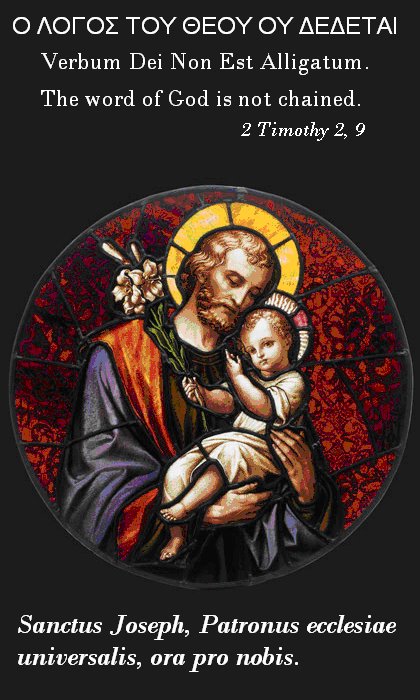Man dies only once in his life, and as he lacks experience of the event, he bungles it. So that he may die successfully, he must learn how to die by following the instruction of experienced men who know what it means to die in the midst of life. Asceticism gives us this experience of death. (Florensky)
I've been thinking a lot about death lately. Several reasons for this, some of them personal. No need to go into that. What prompts this posting is an article written a few days back at The Catholic Thing, "Fear of Death", by Virgil Nemoianu. Reading it, I recalled something I'd read a long while back in Daisetz Suzuki's book, Zen and Japanese Culture (I've referred to this book before; see my posting on the Samurai and the cat). Suzuki quotes a story from a work entitled Hagakure, which translates as "Hidden under the leaves":
Yagyu Tajima no kami Munenori was a great swordsman and teacher in the art to the Shogun of the time, Tokugawa Iyemitsu. One of the personal guards of the Shogun one day came to Tajima no kami wishing to be trained in swordplay. The master said, "As I observe, you seem to be a master of the art yourself; pray tell me to what school you belong, before we enter into the relationship of teacher and pupil."
The guardsman said, "I am ashamed to confess that I have never learned the art."
"Are you going to fool me? I am teacher to the honorable Shogun himself, and I know my judging eye never fails."
"I am sorry to defy your honor, but I really know nothing."
This resolute denial on the part of the visitor made the swordsmaster think for a while, and he finally said, "If you say so, that must be so; but still I am sure of your being master of something, though I know not just what."
"Yes, if you insist, I will tell you this. There is one thing of which I can say I am complete master. When I was still a boy, the thought came upon me that as a samurai I ought in no circumstances to be afraid of death, and ever since I have grappled with the problem of death now for some years, and finally the problem has entirely ceased to worry me. May this be what you hint at?"
"Exactly!", exclaimed Tajima no kami. "That is what I mean. I am glad I made no mistake in my judgment. For the ultimate secrets of swordsmanship also lie in being released from the thought of death. I have trained ever so many hundreds of my pupils along this line, but so far none of them really deserve the final certificate for swordsmanship. You need no technical training, you are already a master."
Of course it is natural to fear and hate death. But even the noble pagans knew that this was something that should be and can be overcome. Suetonius tells us that on the night before he died, Julius Caesar attended a dinner party where the topic under discussion was "what is the best sort of death" (Caesar is supposed to have said, prophetically as it turned out, "Let it come swiftly and unexpectedly"). I can't say that that subject has ever come up at any party I've been to recently. (But then again, I don't get out much!) Part of the reason we fear death so much is that we keep it at a distance, push it away, refuse to think about it. It may sound morbid, but it really is a salutary spiritual exercise to "grapple with the problem" every day. It is in the Rule of St. Benedict that a monk should keep death ever before his eyes. It might not be going too far even to befriend your own personal death. After all, Francis of Assisi called her his Sister. You don't hate and fear your sister.
There is a body of Christian literature, mostly Catholic I think, on the Ars Moriendi, the art of dying well. It arose initially in Medieval times in response to changing conditions brought on by the Black Death. Perhaps this art is something that should be revived. The texts all exort the Christian that the best preparation for a good death is a good life: "Christians should live in such wise ... that they may die safely, every hour, when God will" (cited in Comper, The Book of the Craft of Dying and Other Early English Tracts concerning Death, New York, Arno Press, 1977). Clearly, the preparation for death is not something that can be put off until we are afflicted with old age or serious illness. A consistent practice of memento mori, mindfulness of death, is a necessary part of a truly Christian "art of living".
(More on this topic in my next post.)
Saturday, June 13, 2009
Subscribe to:
Post Comments (Atom)

No comments:
Post a Comment